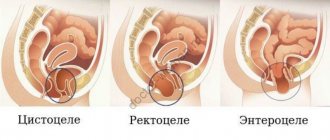Medical abortion is a method of terminating pregnancy caused by medications ( prescribed exclusively by the attending physician - obstetrician-gynecologist and used under the personal supervision of a specialist in the clinic ).
This method of non-surgical termination of pregnancy is the safest and most gentle modern method, which does not require hospitalization of the patient and is better tolerated psychologically.
A revolutionary method of non-surgical abortion in the 21st century is medical abortion. He gained supporters all over the world.
The effectiveness of medical abortion is 95-98% in early pregnancy (42 days from the 1st day of the last menstrual period or 6 weeks of pregnancy).
Pharmacodynamics and pharmacokinetics
Misoprostol is a synthetic derivative of prostaglandin E1 . It is capable of inducing contraction of the smooth muscles of the myometrium and dilation of the cervix, which facilitates the process of excretion of the contents of the uterine cavity. Due to its weak stimulating effect on the smooth muscles of the gastrointestinal tract, large doses inhibit the secretion of gastric juice , and the tablets act as an antiulcer agent .
Misoprostol as an active substance does not have a significant clinical effect on:
- prolactin;
- gonadotropin levels ;
- thyroid-stimulating hormones;
- growth hormones;
- thyroxine;
- cortisol;
- creatinine;
- platelet aggregation.
Pharmacokinetics
Oral administration leads to rapid absorption (max concentration - 6.08±1.64 mg/ml). When taken with meals, especially fatty ones, the bioavailability of the drug decreases without affecting the duration of absorption. In the walls of the gastrointestinal tract and liver, conversion occurs to the active diesterified metabolite - misoprostolic acid , the maximum concentration of which is reached after half an hour and is 499 mg/ml. The half-life is no more than 30 minutes; the substance does not accumulate in body tissues and is excreted primarily by the kidneys.
What is the difference between prostaglandins and antiprogestins?
Antiprogestins reduce the sensitivity of special receptor cells located on the surface of the uterus. The task of these cells is to take in the pregnancy hormone progesterone. After taking antiprogestins, the fetus dies, remaining in the uterus.
Prostaglandins act on smooth muscle receptors, stimulating the contractility of the myometrium (the muscular layer of the uterus), and thereby causing contractions. Under the influence of the medicine, the fertilized egg is rejected and comes out along with the endometrium (the inner layer of the uterus, which is renewed every monthly cycle).
At short stages of pregnancy, a medical abortion, carried out according to all the rules in compliance with the dosages of both drugs, proceeds like menstruation, but the discharge will be thicker and will contain blood clots.
Indications for use
- erosions , as well as erosive and ulcerative lesions of the gastrointestinal tract due to therapy with other drugs and prevention of their ulcerogenic effects (for example, prevention and treatment of NSAID gastropathy );
- peptic ulcer of the duodenum and stomach , including exacerbations;
- for early pregnancy of amenorrhea ).
conclusions
It is impossible to perform a medical abortion with prostaglandins alone, just as nothing will work with the wrong dosage.
Self-administration of medications for medical abortion will result in serious complications
To terminate a pregnancy without complications, you need to see a gynecologist and undergo an ultrasound to determine the timing. Two weeks after the abortion you need to be examined again.
Contraindications
- hypersensitivity to the drug, as well as to other prostaglandins and analogues;
- liver dysfunction;
- cardiovascular or endocrine diseases;
- diabetes;
- severe form of renal failure ;
- contraindications for the use of prostaglandins – bronchial asthma , glaucoma , arterial hypertension ;
- reception of VPZ ;
- inflammatory processes in the intestines , including enteritis ;
- pregnancy , suspected ectopic pregnancy , lactation (breastfeeding);
- age group up to eighteen years.
What else you should know
Taking prostaglandins increases the effectiveness of antiprogesterones only if you stop taking painkillers. Analgesics significantly reduce the contractility of prostaglandins, doctors know this, so they ask the woman to be patient.
If you ignore this feature, there is a risk that the dead embryo will remain inside the uterus and will not come out, provoking severe inflammation and bleeding.
It is prohibited to use pills for pharmacological abortion at home because without an ultrasound it is impossible to find out what kind of pregnancy is occurring: uterine or ectopic.
In case of ectopic pregnancy, drugs are ineffective. Their impact is fraught with severe bleeding and contraction of the uterus, but pregnancy will continue, creating a risk of rupture of the fallopian tube. If the process drags on, the woman is guaranteed surgery to remove the organ.
Side effects
In relation to various organs and systems, Misoprostol can cause the following adverse reactions:
- Gastrointestinal organs: abdominal pain , dyspepsia , flatulence , nausea , vomiting , diarrhea or constipation .
- Genitourinary system: various disorders of the menstrual cycle, postmenopausal bleeding from the vagina, hypermenorrhea , dysmenorrhea , heavy uterine bleeding , pain in the lower abdomen , most often caused by contractions of the myometrium. In the pre- and postmenopausal period - convulsions .
- Cardiovascular system: hypo- or hypertension .
- Skin: rash , itching .
- Allergic reactions and angioedema .
- Other reactions: dizziness , headaches , asthenia , changes in body weight, hyperthermia and/or chills .
Cost of some services in our clinic
| Medical abortion MIROPRISTONE (all medications, appointment with a gynecologist, ultrasound included) | 4500 rub. |
| Gynecologist appointment | 1000 rub. |
| Control ultrasound after medical termination of pregnancy | 1000 rub. |
| Gynecological ultrasound (pelvis) using Doppler techniques (transabdominal and transvaginal) | 1200 rub. |
VIEW ALL PRICES
UP
Instructions for Misoprostol (Method and dosage)
Misoprostol for abortion in combination with Mifepristone is taken according to the following scheme:
- 3 tablets (600 mg) of Mifepristone - orally on an empty stomach or two hours after a meal.
- After 36–48 hours - 2 tablets on an empty stomach. (400 mcg) Misoprostol.
Attention! If after taking there is no bleeding for 2 days, then taking the pills on your own is prohibited. To prescribe an additional dosage, you should consult a doctor - visit an obstetrician for 2-3 days.
Instructions for the use of Misoprostol as an antiulcer drug involve taking the tablets orally with meals. Dosage: 200 mcg 3-4 times a day, a single dose in the range of 200-400 micrograms, if the patient has hypersensitivity or renal failure - the dose is 100 micrograms. How to take it and for how long should be calculated depending on the indications and the observed clinical picture of treatment.
Stages of medical abortion
A medical abortion requires 3 visits to the doctor.
Visit 1
On the day of treatment, the obstetrician-gynecologist talks, examines the patient, and gives her:
1) Ultrasound for the purpose of:
- confirm pregnancy;
- establish that pregnancy develops in the uterus;
- establish the duration of pregnancy (no more than 6 weeks or 42 days from the first day of the last menstruation).
2) minimal examination, which includes:
- taking a smear on the flora;
- referral for a blood test (for syphilis, AIDS, hepatitis; determination of blood type and Rh factor).
Then, during the first consultation, the doctor will tell you in detail how the procedure should be carried out and indicate the order of repeat visits, as well as inform you about what the symptoms may be and how to behave in such cases.
During pregnancy and lactation
Based on the type of effect on the fetus, the drug is classified in category (according to the FDA) - X.
Misoprostolic acid can pass into breast milk. Despite the fact that there is no information on the development of any adverse reactions in children, it is recommended to use Misoprostol during lactation with caution.
If the drug is used as:
- Gastroprotective agent: pregnancy or planning it is unacceptable, since increased uterine tone can cause miscarriage . The drug can be prescribed only after pregnancy test Taking Misoprostol is usually started 2-3 days after the start of the menstrual cycle ; a prerequisite is the use of reliable methods of contraception , for example, barrier ones.
- Uterotonic: use for the purpose of termination of pregnancy, otherwise the drug is contraindicated in case of planned pregnancy.
Can taking abortion pills cause any complications?
Since the drugs used during pharmacological abortion are hormonal, they can cause a disruption in the production of hormones. In this case, periods after a medical abortion may come very late. The first menstruation may be scanty or too short. As a rule, after a few months the menstrual cycle returns to normal.
MAKE AN APPOINTMENT
[contact-form-7 id=”296" title=”Untitled”]
Abortion and contraception clinic in St. Petersburg - department of the medical gynecological association "Diana"
Make an appointment, tests or ultrasound via the contact form or by calling +8 (812) 62-962-77. We work seven days a week from 09:00 to 21:00.
We are located in the Krasnogvardeisky district, next to the Novocherkasskaya, Ploshchad Alexander Nevsky and Ladozhskaya metro stations.
The cost of a medical abortion in our clinic is 3,300 rubles. The price includes all pills, an examination by a gynecologist and an ultrasound to determine the timing of pregnancy.
Reviews of Misoprostol
Reviews about Misoprostol can be found absolutely varied. Many note the drug as an effective means for terminating pregnancy, although they complain about side effects and negative consequences after use.
Pencrofton and Misoprostol are used in combination for medical abortion , but it must be supervised by medical staff and supervised by a doctor. In addition, medical specialists usually prescribe Misoprostol for the treatment of erosive and ulcerative lesions of the gastrointestinal tract and to prevent the ulcerogenic effects of other drugs.
Can an abortion fail?
This situation occurs extremely rarely - only in 1.6% of cases. Moreover, the earlier the interruption was carried out, the higher the likelihood that it will be successful.
It is almost impossible to determine by external signs whether a medical abortion has occurred, therefore, after the termination is completed, an ultrasound diagnosis is required to make sure that the fertilized egg has been completely released.
Unfortunately, it is impossible to create a pregnancy that is not terminated after taking the pills. Mifepristone and Misoprostol have a negative effect on the fetus and can lead to the development of severe congenital anomalies. Therefore, the pregnancy will have to be terminated in any case.
MISOPROSTOL 0.2MG. No. 4 TAB.
Instructions for use:
| Registration number: LS-002019 Trade name of the drug: Misoprostol International nonproprietary name: Misoprostol Dosage form: tablets. Composition: Each tablet contains: Active substance: misoprostol powder HPMC (1:99) contains 0.2 mg misoprostol and 19.8 mg hypromellose; Excipients: sodium carboxymethyl starch, castor oil, microcrystalline cellulose, colloidal silicon dioxide. Description: Round white tablets. |
Pharmacotherapeutic group:
PGE1 analogue synthetic.
ATC code
– G02AD
Pharmacological properties
Misoprostol is a synthetic derivative of prostaglandin E1.
Induces contraction of smooth muscle fibers of the myometrium and dilation of the cervix. Misoprostol's ability to stimulate uterine contractions facilitates the dilation of the cervix and the removal of the contents of the uterine cavity. After taking mifepristone, Misoprostol may induce or increase the frequency and strength of spontaneous uterine contractions. The drug has a weak stimulating effect on the smooth muscles of the gastrointestinal tract. Large doses of misoprostol inhibit gastric acid secretion. Pharmacokinetics.
The drug is rapidly absorbed when taken orally, being completely absorbed after 1.5 hours.
The maximum concentration of the active metabolite (misoprostolic acid) in the blood plasma is reached after 15 minutes; at a dosage of 200 mg, its average value is 0.309 μg/l. The active metabolite is excreted from the body primarily through urine, with a half-life of 36–40 minutes. Indications for use
Termination of early pregnancy (up to 42 days of amenorrhea) in combination with mifepristone.
Contraindications
- Hypersensitivity to the components of the drug;
- Cardiovascular diseases;
- Liver and kidney diseases;
- Diseases associated with prostaglandin dependence or contraindications to the use of prostaglandins: glaucoma, bronchial asthma, arterial hypertension;
- Endocrinopathies and diseases of the endocrine system, including diabetes mellitus, adrenal dysfunction
- Hormone-dependent tumors;
- Anemia;
- Lactation period;
- The use of intrauterine contraceptives (the IUD must be removed before use);
- Suspicion of ectopic pregnancy.
Use during pregnancy and lactation
The drug can be used by pregnant women only to terminate it, otherwise it is strictly contraindicated during pregnancy.
If pregnancy is established in persons taking Misoprostol, therapy with this drug should be discontinued. It is necessary to inform patients about the potential danger of Misoprostol (teratogenic effect). Breastfeeding should be stopped for 7 days after taking mifepristone in the method of medical abortion (5 days after taking Misoprostol). Method of administration and dosage
To terminate pregnancy, together with mifepristone, the drug should be used in institutions that have appropriately trained medical personnel.
Orally, 36-48 hours after taking 600 mg (3 tablets) of mifepristone, 400 mcg (2 tablets) of Misoprostol are prescribed. Side effects
When used in early pregnancy, nausea, vomiting, dizziness, lethargy, and pain in the lower abdomen are possible.
Extremely rare cases of flushing of the face, increased body temperature, itching, and allergic reactions have been noted. Overdose
No toxicity of misoprostol has been identified in humans.
Clinical signs that may indicate overdose include drowsiness, tremor, convulsions, abdominal pain, fever, palpitations, hypotension or bradycardia. Interaction with other drugs
Long-term use of rifampicin, isoniazid, anticonvulsants, antidepressants, cimetidine, acetylsalicylic acid, indomethacin and barbiturates, smoking more than 10 cigarettes per day stimulates the metabolism of misoprostol, reducing its level in the blood serum.
Within 1 week after using misoprostol, you should stop taking aspirin and other non-steroidal anti-inflammatory drugs. special instructions
- When used to terminate early pregnancy, misoprostol should only be used in combination with mifepristone.
- In combination with mifepristone, misoprostol should be used only as prescribed and under the supervision of a physician and only in specialized medical institutions that have the capabilities to provide emergency gynecological surgical and blood transfusion care.
- Before prescribing misoprostol, the patient should be informed in detail about the action and possible side effects of the drug. The patient should be observed in a medical facility for 4–6 hours before taking the drug. During and after taking the drug, the patient should be provided with timely medical assistance in case of massive bleeding or the development of other complications.
- After taking the drug, patients usually experience slight vaginal bleeding, and in some women it is quite prolonged. In very early pregnancy, a miscarriage is possible after taking mifepristone, but in this case it is also necessary to take misoprostol tablets to optimize the results of the drug. After taking misoprostol, approximately 80% of women miscarry within 6 hours and approximately 10% of women within 1 week.
- Patients must be re-examined at the same medical institution 8-15 days after taking the drug. If necessary, an ultrasound scan or determination of the level of human chorionic gonadotropin in the blood serum should be performed. If you suspect an incomplete abortion or continued pregnancy, it is necessary to conduct a comprehensive medical examination in a timely manner.
- In case of incomplete abortion or ongoing pregnancy, assessed at 10–14 days after taking mifepristone, vacuum aspiration must be performed, followed by histological examination of the aspirate, since the formation of congenital malformations in the fetus is possible.
Release form
Tablets 0.2 mg.
3 or 4 tablets are packed in an aluminum blister with an aluminum coating. The blister and instructions for use are placed in a paper box. Storage conditions
Store in sealed packaging in a dry and cool place, protected from light and out of reach of children, at a temperature not exceeding 25 °C.
Shelf life:
2 years.
Do not use after the expiration date. Conditions for dispensing from pharmacies
By prescription.
Manufacturer: Beijing Zizhu Pharmaceutical Co., Ltd., China Other drugs from the group Contraceptive drugs










